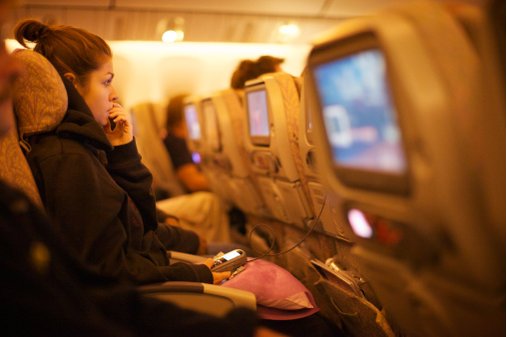You learn something new every day — I’ve flown on a lot of airplanes, but except for screaming kids, I’ve never thought about crying. And yet, I’ve just found an article entitled “This Is Why You’re More Likely to Cry on an Airplane, According to a Psychologist” by Mahita Gajanan (http://time.com/5274209/airplane-cry-
emotion/?, the photo is from that article). And yes, we’re talking about adults.
Think about when you watch a movie. How often are you moved to tears? Probably more often on an airplane. London’s Gatwick Airport took a a survey of passengers in 2017 and discovered that 15% of men and 6% of women are more likely to cry while watching a film in flight than watching anywhere else.
Why? There are several reasons. Physiologically, altitude levels, air-pressure changes, strange noises, and the tendency to become dehydrated are unsettling factors. Then there is the stress of traveling to an airport, going through security, and getting situated in a strange environment under strict time constraints. Finally, a darkened cabin and viewing on a small screen can cause a feeling of loneliness. “We have little control over our environment while we are traveling by plane,” says Jodi De Luca, a Colorado-based psychologist who studies the impact of high altitudes on emotions. “Although we may not be consciously aware of our emotional vulnerability, our emotional brain is working overtime.”
Is there an upside? That depends on your personality type. If you have trouble showing emotion on solid ground, the changes brought on by flying can be welcome, and even therapeutic. The writer Hayley MacMillen said in Allure that she embraces long sob sessions on lengthy flights.
But if you don’t want to go there (figuratively, of course), Dr. De Luca recommends trying challenging activities to keep the brain stimulated. “Try Sudoku or a crossword puzzle while flying. It will make you think more and cry less.”

